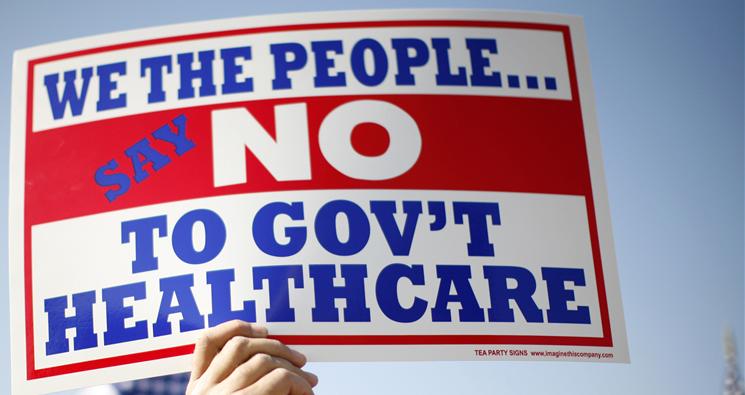The Individual Mandate: There’s More To It Than Just Health Care
At the end of March, the U.S. Supreme Court will hear oral argument on the constitutionality of the health care law, otherwise known as ObamaCare. The main legal challenge is to the individual mandate, the provision requiring millions of Americans to buy and indefinitely maintain health insurance or face annual penalties, which is the essential component of ObamaCare.
The individual mandate marks the first time in our 220-plus year history as a Constitutional form of government that Congress has required American citizens to purchase a product (here, health insurance) from a private company simply because they are American citizens. Previously, Congress provided us with incentives to buy products; it did not require us to make the purchases—for example, providing extra money toward the purchase of a new car via the “Cash for Clunkers” program if we chose to buy a new car.
The principle behind the individual mandate—that Congress can compel Americans to purchase a product—is a game changer for our country. Should the Supreme Court uphold that power, the Court would be giving Congress virtually unlimited power under the Commerce Clause. From then on, Congress could tell us what to buy and what not to buy (no matter the product); if we refused, we would be hit with annual penalties.
This is not mere speculation; it is the position being advanced by the federal government. Recently during oral argument in another ObamaCare challenge in a federal court in Pennsylvania, the federal government’s attorney acknowledged to the judge that, under the government’s theory of the Commerce Clause, if Congress determined that following the adage “an apple a day keeps the doctor away” would improve Americans’ health, then Congress would be within its Commerce Clause power to order Americans to purchase apples. Further, the government’s attorney did not, and could not, name any requirement to purchase a commodity from a private company that Congress would lack the power to enact.
Because the broad expansion of federal power underlying the individual mandate would, if accepted, lead to a virtually unlimited power for Congress, it is critically important that the Supreme Court invalidate the individual mandate (as well as the entire ObamaCare law). As the Supreme Court has said repeatedly, the Constitution itself illustrates that Congress’s power under the Commerce Clause has limits. There are no limits, however, to Congress’s power under the federal government’s view of the Commerce Clause.
Indeed, should the individual mandate be upheld by the Supreme Court, our nation and system of government will be forever changed. Although the Constitution deliberately divides power among the various branches and levels of government so that no single individual or entity may wield unlimited power, acceptance of the federal government’s radical view of the Commerce Clause would fundamentally alter the constitutional balance of power.
In addition to advancing our own ObamaCare case at the Supreme Court, the ACLJ has filed two friend-of-the-court briefs with the Court (here and here) and we are preparing to file a third.
It is vital that the Supreme Court invalidate the individual mandate and thereby preserve the structure and integrity of the Constitution. We at the ACLJ are working hard to achieve that end.
